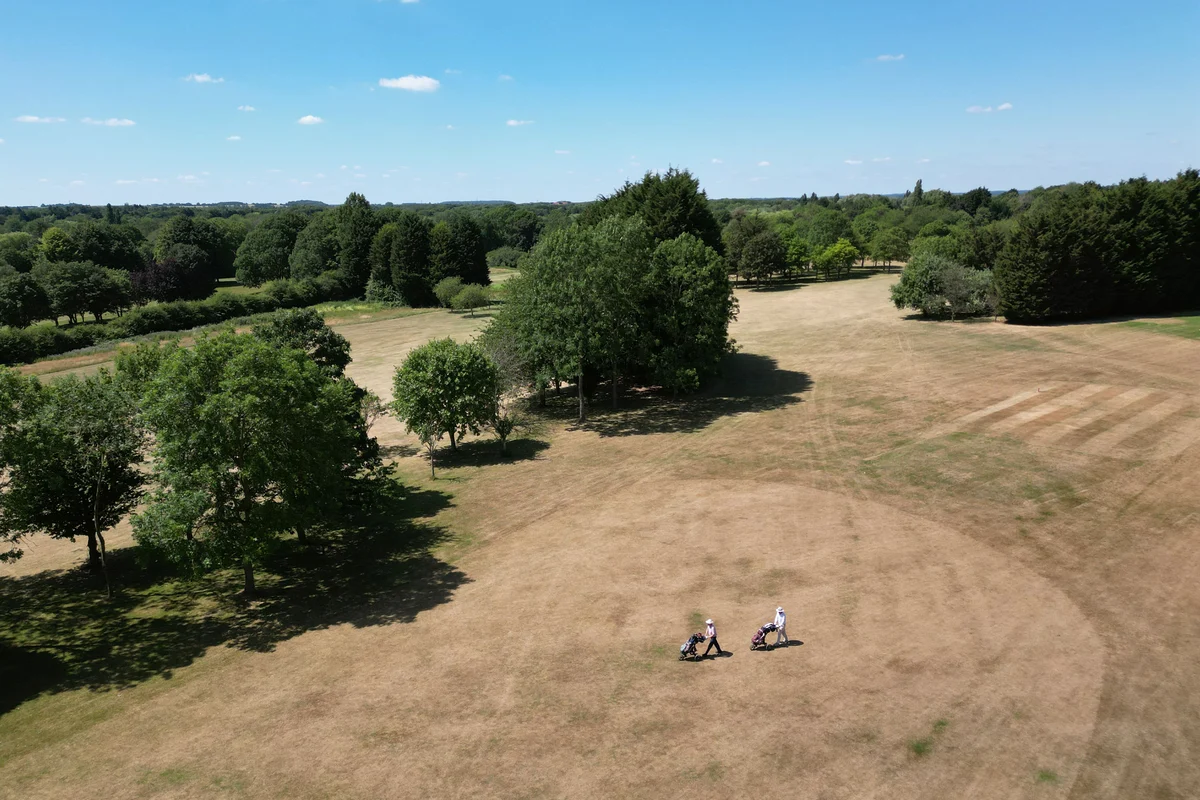By Rebecca Speare-Cole
The heatwave is set to peak in the South East with temperatures of up to 35C in what is forecast to be the hottest day of the year so far.
Much of England has been issued with warnings of extreme heat this week as Monday brought the hottest start to Wimbledon on record and temperatures soared to a high of 33.1C in Heathrow.
Gritters have been dispatched in Bedfordshire to protect the roads and provide grip for drivers amid concerns the heat could cause the tarmac to soften, the local council said in a Facebook post.
The Met Office said temperatures could reach 34-35C in London on Tuesday, which would make it the hottest day of the year so far, before cooler conditions sweep in from the North later in the day.
It is the second heatwave for parts of the UK within the last month.
Scientists warned that the searing temperatures earlier in June were made 100 times more likely because of human-caused climate change, while the heatwave that gripped south-east England was 10 times likelier.
As July kicks off, forecasters said temperatures in the mid-30s are still relatively uncommon for the month in the UK, although they are becoming increasingly frequent with climate change.
The UK Health Security Agency (UKHSA) has extended amber heat health alerts for much of the country into Wednesday morning.
Conservationists and green experts have also warned of the wildfire risk as well as the impact on farmers, who face another poor harvest following one of the driest springs on record.
Met Office spokesman Stephen Dixon said: “We got to 33.1C yesterday at Heathrow, and we’re expecting to be just a touch beyond that in London today, possibly getting up to around 35C in London in particular.”
Mr Dixon said Tuesday was likely to mark “the peak of this current heatwave in terms of absolute temperatures we’re expecting”.
“It’s a continuation of recent days in the South East in particular, with those temperatures well beyond average for the time of year, in a fairly notable heatwave,” he added.
However, Tuesday will also bring the start of a transition towards more average temperatures, as a cooler, wetter front over Scotland and the north of England gradually moves south-eastwards.
“It’s already bringing some rain to parts of Scotland through the day today, and will gradually move southwards through the day today and overnight tonight,” Mr Dixon said.
“Tomorrow will be feeling fresher for many, with temperatures more likely to kind of get into the mid-20s, and some showery rain, particularly in some eastern coasts, through the day tomorrow as well.”
Forecasters say conditions will stay relatively dry throughout the week in the South but the weekend is currently looking more unsettled, with frequent showers, particularly in western areas.
In terms of wildfires, Ben McCarthy, head of nature conservation and restoration ecology at the National Trust, said: “With record-breaking temperatures across the country this week following the driest spring on record, our ranger and countryside teams are on high alert for fires which can cause decades of damage to habitats, decimate ecosystems and result in significant losses to our wildlife.
“Unfortunately, the sad truth is that most of the fires in the UK that impact our landscapes are started by people – whether accidentally or not – rather than by natural causes.
“Therefore we’re calling on people to help us protect wildlife and habitats by acting responsibility when outdoors as even a small spark can cause a fire, and to please call 999 if you see a fire or any suspicious behaviour.”
It come as a survey of 300 farmers by the Energy and Climate Intelligence Unit (ECIU) found that more than four fifths say extreme weather has hit their productivity and three quarters have experienced financial losses.
Tom Lancaster, ECIU land, food and farming analyst, said: “Crop condition remains poor following one of the driest springs on record, with the quality of key arable crops such as wheat, barley and oats well down on recent years.
“Condition is particularly poor in the north of England, which has experienced low levels of rainfall, with much of it in drought.
“Many farmers will now be looking towards this harvest with real trepidation.
“For some, the weather in the coming weeks will determine whether they have anything worth harvesting at all.”
